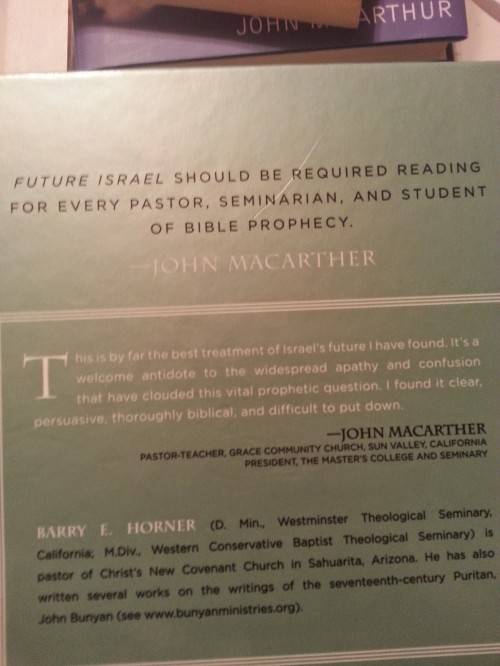Francis Schaeffer’s paedobaptist covenant premillennialism appears to be rarely held today, although apparently it was commonly held among the Bible Presbyterians and the Reformed Presbyterian Church, Evangelical Synod (RPCES), both of which he ministered in during his career.
The following is Schaeffer’s view in a nutshell and basically explains why he takes prophecy “literally” but why he wasn’t a dispensationalist even though he was a pre-tribulationist. It is from the second half of the message on the Covenant of Grace in the Westminster Confession of Faith series that was taught at L’Abri in the early 1960s. (This series includes the sermon from which his little book on Baptism was drawn.)
This is basically an introduction to a series of messages on the Abrahamic Covenant in which he emphasizes what he terms the unity and diversity of the covenant. This transcription is very lightly edited to remove repetition, etc. My apologies for any grammatical errors.
—————————
Schaeffer:
We have here two halves in the first three verses of the Abrahamic Covenant. [He then quotes Gen 12:1-3.]
Here we have two halves and we must not get the two halves confused. There is a national, natural promise here to the natural seed of Abraham who are the Jews. But there is also the spiritual portion. The Covenant of Grace is operating here. The Covenant to Noah is under the Covenant of Grace. The Covenant to Abraham is under the Covenant of Grace. It is not aside from the Covenant of Grace. It is a part and a portion of the Covenant of Grace.
What you have is the two halves given. There is the half that deals with the Jews as the Jews, a nation. And I would say that Romans makes very plain that God is not done with the Jews. This portion of the covenant still stands. As a matter of fact, I would say immediately that if it doesn’t stand, then we cannot trust God, because he says in reference to his covenant to the Jews, as Paul is speaking to the Jews concerning national, natural Israel, his brethren according to the flesh, he says “The gifts and calling of God are without repentance.” He’s talking about the national, natural portion of the promise of the Abrahamic Covenant to the Jews as Jews. But we mustn’t forget that that isn’t all there is to it. There is a spiritual portion, a spiritual and personal element that is shown here: Looking forward to the coming of Messiah and an individual’s partaking in personally in it.
Those who tend to take the amillennial position tend to lose the diversity of this and confuse the national, natural portion with the spiritual portion. But there are many many people today who make the opposite mistake. And that is that they lose the unity, the failure to understand the total unity of the Covenant of Grace from the promise of Gen 3:15 onward, including the fact that there is a unity to those of us who are born again, now on this side of the cross, a unity with these promises, the spiritual side of the promises made to Abraham. Let us not lose the diversity. There is a difference between the promise made to the nation of the Jews as Jews and the spiritual portion, but let us equally beware of losing the unity, There is a unity to the Covenant of Grace. To say in passing, this is the reason I am not a dispensationalist. There is a unity.


